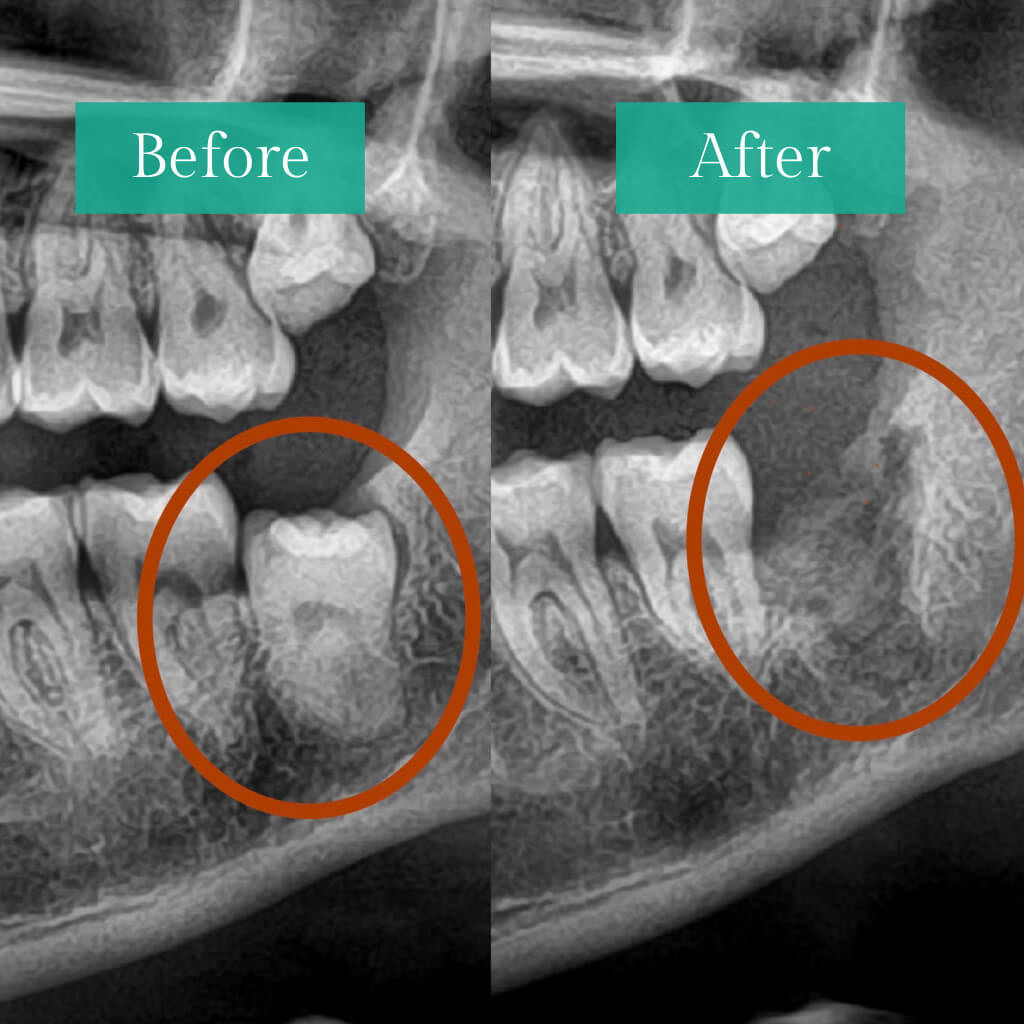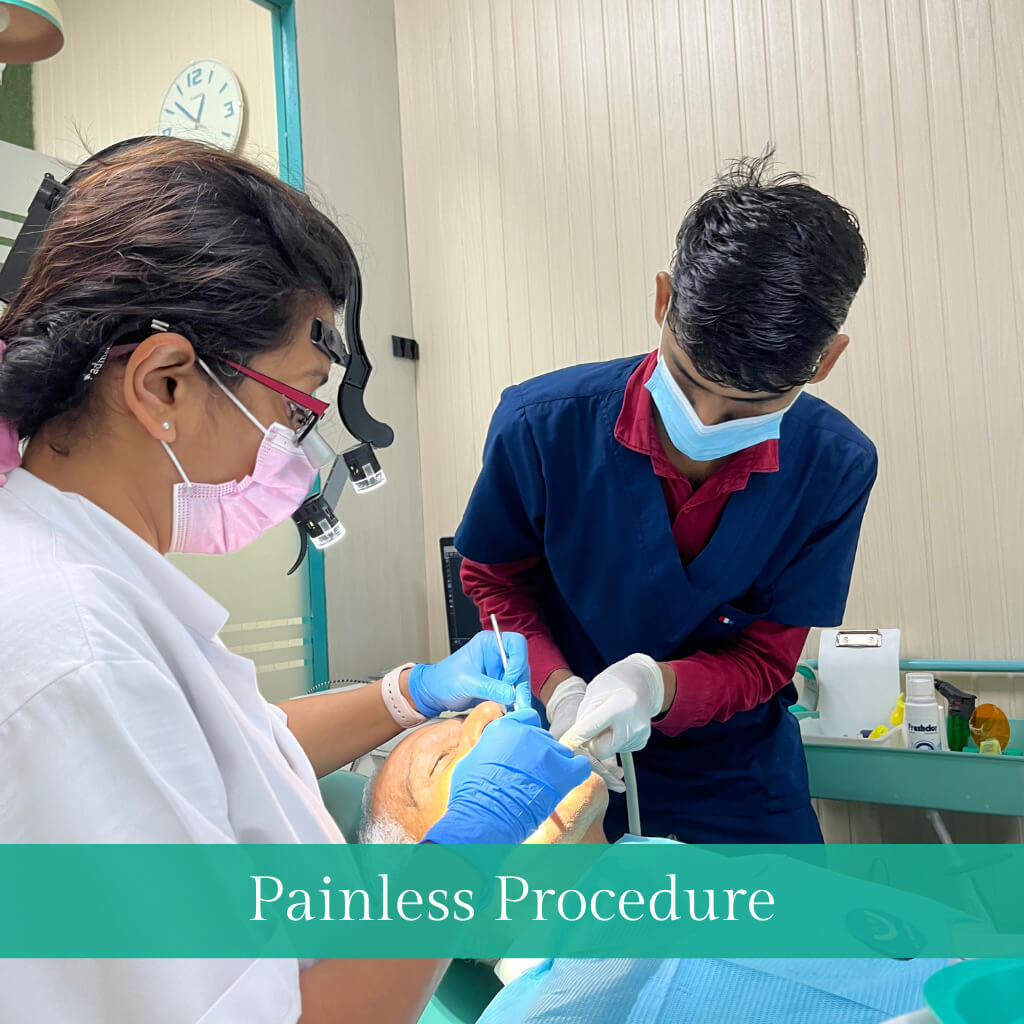Do All Wisdom Teeth Need to Be Extracted?
We all have heard the myths and tales surrounding wisdom teeth. While some of us have had a first-hand experience with these notorious teeth, others have heard from family or friends. Let us understand better from the specialists about what they actually are! Wisdom teeth, also known as third molars, are the last set of molars to emerge in the human mouth. Wisdom teeth typically emerge during the late adolescent and early adult years, commonly recognized as the "age of wisdom," which spans from around 17 to 25 years of age. While they are a natural part of human dentition, the question of whether all wisdom teeth need to be extracted remains a topic of debate in the field of dentistry.
This article explores the various factors that may influence the decision to extract or retain wisdom teeth, addressing issues such as impaction, crowding, infection or gum disease, decay or cavities, pain and discomfort, and prophylactic removal.
Key Takeaways
- Wisdom teeth can cause dental issues like overcrowding, misalignment, and infections if left untreated.
- Impaction, where the teeth become stuck beneath the surface of the gums, can lead to pain, swelling, and other serious complications.
- Crowding caused by wisdom teeth can result in infections, difficulty eating, and positioning problems with other teeth.
- Maintaining regular dental check-ups, adhering to sound oral hygiene practices, and contemplating prophylactic removal are effective ways to avert enduring dental problems linked to wisdom teeth.
What Are Wisdom Teeth?
Located at the back of the mouth on both upper and lower jaws, wisdom teeth are the third and final set of molars. In a fully developed adult dentition, there are typically four wisdom teeth, one in each quadrant of the mouth. These teeth are remnants of our evolutionary past when our ancestors' diets were primarily composed of rough, unprocessed foods, requiring additional grinding power.
Impaction
Impaction (incomplete eruption) is one of the most common reasons for considering the extraction of wisdom teeth. An impacted tooth is a dental condition in which a tooth fails to emerge through the gum tissue due to insufficient space in the jawbone or an unfavourable position or angulation. This condition can lead to various problems, making extraction a necessary course of action in many cases.
Complications of Impacted Wisdom Teeth:
Pain and Discomfort: When wisdom teeth are impacted, they can cause severe pain, discomfort, and swelling in the affected area. Damage to adjacent tooth: Horizontally impacted wisdom tooth are known for notoriously causing decay/ resorption/ bone loss and pocket formation in the second molars, which are important chewing teeth. If such teeth are detected on the x-ray, it is advisable to get them removed at the earliest.
Infection: Bacteria can become trapped around impacted teeth, leading to gum infections and dental abscesses. Cyst Formation: In rare cases, cysts may develop around impacted teeth, causing damage to the surrounding bone. While not all impacted wisdom teeth need to be extracted, it is often recommended when they cause pain, infections, or other complications.
Crowding
Crowding occurs when there is not enough space in the jaw to accommodate the emerging wisdom teeth. This lack of space can lead to misalignment of other teeth, potentially causing orthodontic problems like malocclusion (misalignment of the bite) and other orthodontic issues. When crowding becomes a concern, orthodontists and dentists may recommend the removal of one or more wisdom teeth to preserve the alignment of the rest of the dentition.
Infection or gum disease
Wisdom teeth, positioned at the rear of the mouth, can pose challenges when it comes to effective cleaning. This location can result in a higher risk of infection or gum disease, particularly when the teeth do not fully erupt. Infected wisdom teeth can cause considerable discomfort and may require extraction.
Decay or cavities
Just like any other teeth, wisdom teeth can develop cavities or tooth decay. Their location at the back of the mouth makes them susceptible to the accumulation of food debris, which can lead to decay over time. If the decay is extensive, it may warrant extraction.
Cavity Development:
Wisdom teeth are particularly prone to cavities due to their position and the difficulty in reaching them for proper cleaning. Neglecting oral hygiene, such as brushing and flossing, can accelerate the development of cavities in these teeth.
Tooth Decay Treatment:
Instances of decay can be managed with treatments like fillings or root canals. However, the location of the wisdom teeth may make such treatments challenging and less effective. Your dentist will evaluate the status of your wisdom tooth and offer you an accurate diagnosis along with suitable treatment alternatives tailored to your specific requirements. Extraction might be advised when the decay is advanced and presents a substantial threat to overall oral health.
Pain and discomfort
Aside from cavities and decay, pain and discomfort can also be an indicator that wisdom teeth need to be extracted. Severe pain in the jaw or around the wisdom teeth can be a result of impacted, misaligned, or partially erupted wisdom teeth. In addition, a lack of space in the mouth can create a situation in which wisdom teeth can't fully erupt, leading to pain and discomfort when attempting to chew.
If left unaddressed, this pain can develop into a chronic condition leading to the spreading of infection to surrounding structures like the muscles (leading to inability to open mouth wide), into the gums and cheeks (leading to swelling on the face), or towards the nerve (leading to numbness or paresthesia)
Removal of wisdom teeth through extraction is the best way to avoid these issues and can result in quick pain relief.
Prophylactic removal
Prophylactic removal refers to the preventive extraction of wisdom teeth before they cause problems. It's a proactive approach to avoid potential complications, such as impaction, crowding, infection, decay, and pain, often associated with these teeth. The decision for prophylactic removal should be made in consultation with a dental professional, taking into account individual circumstances and oral health. It aims to prevent future issues by removing wisdom teeth before they become problematic.
Prophylactic removal can be beneficial for those who are at risk of developing any of the following:
- Uncomfortable soft tissue impaction
- Periodontal disease
- Complicated healing after dental procedures
- Pain and discomfort
- Structural damage to other teeth
For patients who are at risk for any of the above, a dental professional may recommend prophylactic removal of the wisdom teeth. This can help to prevent long-term dental issues and ensure a healthy smile.
Why Models Undergo Early Wisdom Tooth Extractions?
Models often opt for early wisdom tooth extraction as a proactive measure to prevent potential dental issues that could impact their careers. Here's why:
- Preventing Impaction: Removing wisdom teeth before they fully erupt decreases the likelihood of impaction. This reduces the chances of teeth becoming trapped or causing alignment problems.
- Ease of Recovery: Extracting these teeth at a younger age often results in a smoother and quicker recovery process. Younger individuals tend to heal faster, minimizing post-operative discomfort and downtime.
- Reduced Risk of Complications: Early extraction reduces the risk of complications such as infections or dry sockets, which could otherwise prolong recovery and affect a model's appearance.
- Preventing Future Dental Issues: Removing wisdom teeth early helps prevent potential problems like crowding or misaligning existing teeth. This proactive step maintains the smile's integrity and prevents the need for orthodontic treatments later in their careers.
- Preserving Aesthetic Appeal: Early removal ensures models maintain their trademark straight, white, and flawless smiles throughout their careers. This preventive approach helps preserve their appearance, which is crucial for their professional image.
- Quick Return to Work: With a faster recovery period, models can return to their demanding schedules sooner. Minimal downtime means they can resume their modelling commitments promptly after the extraction.
By addressing potential dental concerns preemptively, models can safeguard their oral health and maintain their professional appearance, allowing them to focus on their careers without worrying about future dental issues.
FAQ’s
Conclusion
Ultimately, it's up to you and your dentist to decide if your wisdom teeth need to be taken out. Sometimes, they cause crowding, infection, or cavities and can be really painful. However, if you have a healthy mouth and no signs of complications, you might be able to keep them.
Ultimately, it's best to talk to your dental specialist or oral surgeon at Hope Dental & Esthetic Clinic, Noida, to decide what's best for your smile. Even if the decision is to remove them, don't worry – in the right hands, it's a straightforward and painless procedure.




